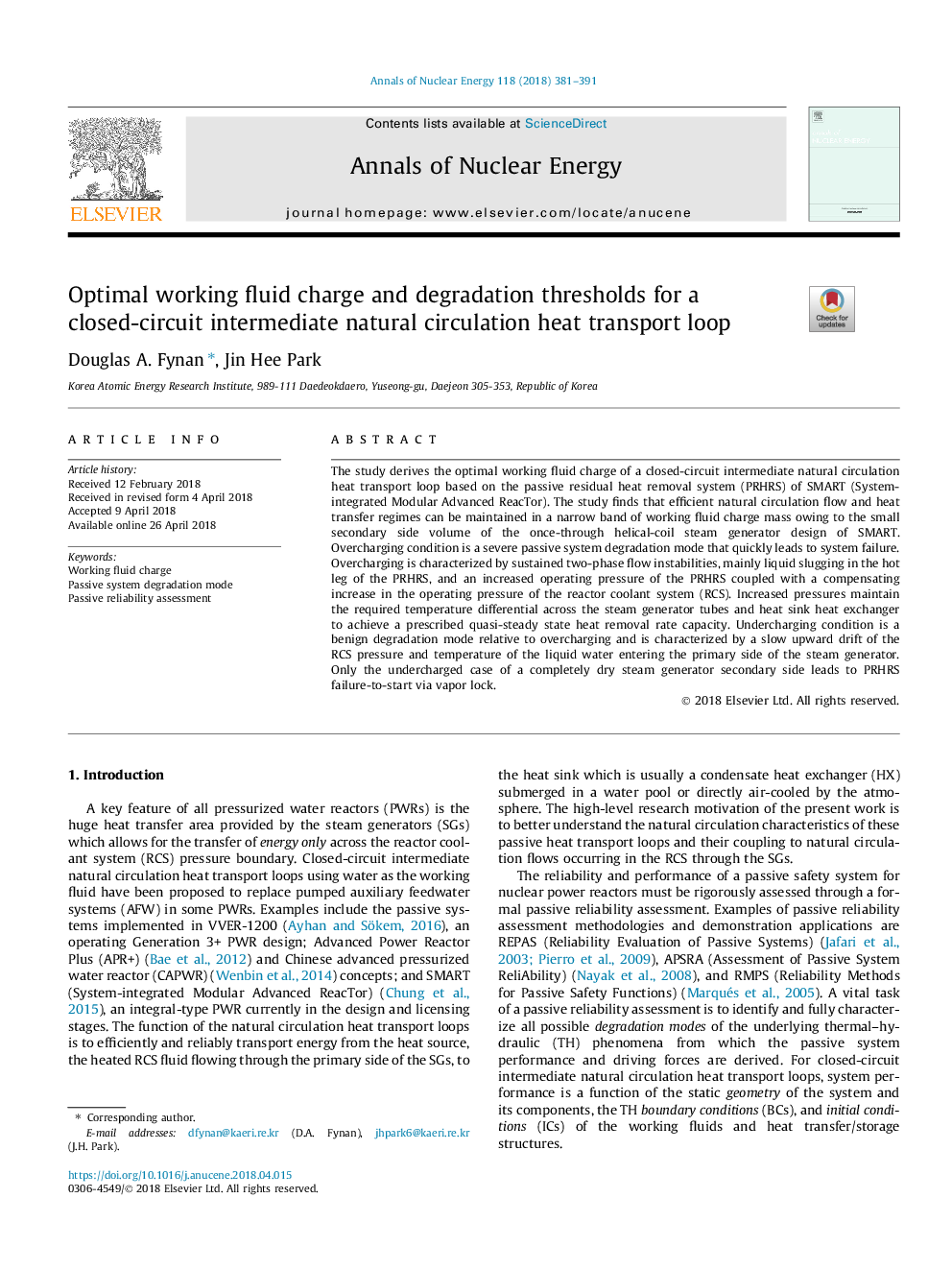| Article ID | Journal | Published Year | Pages | File Type |
|---|---|---|---|---|
| 8067001 | Annals of Nuclear Energy | 2018 | 11 Pages |
Abstract
The study derives the optimal working fluid charge of a closed-circuit intermediate natural circulation heat transport loop based on the passive residual heat removal system (PRHRS) of SMART (System-integrated Modular Advanced ReacTor). The study finds that efficient natural circulation flow and heat transfer regimes can be maintained in a narrow band of working fluid charge mass owing to the small secondary side volume of the once-through helical-coil steam generator design of SMART. Overcharging condition is a severe passive system degradation mode that quickly leads to system failure. Overcharging is characterized by sustained two-phase flow instabilities, mainly liquid slugging in the hot leg of the PRHRS, and an increased operating pressure of the PRHRS coupled with a compensating increase in the operating pressure of the reactor coolant system (RCS). Increased pressures maintain the required temperature differential across the steam generator tubes and heat sink heat exchanger to achieve a prescribed quasi-steady state heat removal rate capacity. Undercharging condition is a benign degradation mode relative to overcharging and is characterized by a slow upward drift of the RCS pressure and temperature of the liquid water entering the primary side of the steam generator. Only the undercharged case of a completely dry steam generator secondary side leads to PRHRS failure-to-start via vapor lock.
Related Topics
Physical Sciences and Engineering
Energy
Energy Engineering and Power Technology
Authors
Douglas A. Fynan, Jin Hee Park,
